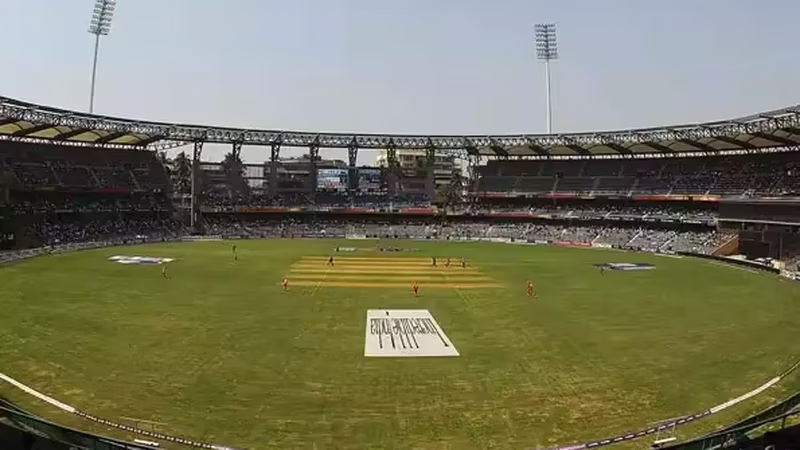Cricket fans, mark your calendars—though the official dates aren’t out yet, the stage for the 2026 T20 World Cup is already taking shape. In a major strategic pivot, the International Cricket Council (ICC) is leaning heavily toward hosting the tournament in India’s iconic Tier 1 venues: Delhi, Mumbai, Chennai, Kolkata, and Ahmedabad.
This move marks a sharp departure from the recent ICC Women’s World Cup 2025, which was held largely in lesser-known centers like Navi Mumbai’s DY Patil Stadium and Cuttack. While that approach had its merits—spotlighting emerging infrastructure—it left big-city fans yearning for a slice of the action. The ICC appears to have listened.
Table of Contents
- Why Tier 1 Cities Are Making a Comeback
- The Five Likely 2026 T20 World Cup Host Cities
- Stadium Spotlight: What to Expect
- Impact on Fans and Local Economy
- When Will the Official Schedule Drop?
- Sources
Why Tier 1 Cities Are Making a Comeback
The 2026 T20 World Cup isn’t just another tournament—it’s the biggest global showcase for the fastest format of the game. With billions watching and massive commercial stakes, the ICC needs venues that deliver on three fronts: capacity, infrastructure, and fan energy.
“A tournament of this magnitude deserves a platform that matches its scale,” an ICC insider told The Times of India. Tier 1 cities offer world-class transport, international hotels, broadcast facilities, and, most importantly, cricket-crazed crowds that can fill 50,000+ seats night after night.
Compare that to smaller venues used in the Women’s World Cup, which, while modern, struggled with attendance and logistical bottlenecks. The lesson? For marquee events, big cities simply work better.
The Five Likely 2026 T20 World Cup Host Cities
Based on current planning and infrastructure readiness, these five metros are frontrunners:
- New Delhi – Feroz Shah Kotla (now Arun Jaitley Stadium): Historic, centrally located, and recently upgraded with new LED floodlights and drainage.
- Mumbai – Wankhede Stadium: Home of the 2011 World Cup final; perfect for high-stakes knockout games.
- Chennai – M.A. Chidambaram Stadium (Chepauk): Known for its spin-friendly pitch and electric crowd support.
- Kolkata – Eden Gardens: Asia’s largest cricket stadium with a capacity of over 66,000—ideal for opening or final matches.
- Ahmedabad – Narendra Modi Stadium: The world’s largest cricket stadium (132,000 capacity), already tested with the 2021 T20 World Cup final.
These venues aren’t just stadiums—they’re cultural landmarks that amplify the drama of international cricket.
Stadium Spotlight: What to Expect
Each of these grounds brings something unique to the table:
| City | Stadium | Capacity | Key Feature |
|---|---|---|---|
| Mumbai | Wankhede | 33,000 | Ocean breeze, fast outfield, iconic skyline views |
| Delhi | Arun Jaitley | 41,000 | Excellent pitch for pace and bounce |
| Chennai | Chepauk | 38,000 | Spin paradise, roaring home crowd |
| Kolkata | Eden Gardens | 66,000+ | Unmatched atmosphere, floodlight legacy |
| Ahmedabad | Narendra Modi Stadium | 132,000 | State-of-the-art facilities, massive scale |
For fans planning to attend, expect ticketing systems similar to the 2021 T20 World Cup—but with lessons learned on queue management and digital access.
Impact on Fans and Local Economy
Hosting the 2026 T20 World Cup in these cities isn’t just good for cricket—it’s an economic turbocharger. Hotels, restaurants, transport services, and even street vendors stand to benefit massively.
Take the 2021 T20 World Cup in the UAE: despite limited crowds, matches generated an estimated $300M+ in local economic activity. In India’s domestic market, that number could easily triple.
For fans, it means more than convenience—it’s about legacy. Imagine watching India vs Pakistan at Eden Gardens or a semifinal under the lights at Wankhede. These are moments that become family stories for generations.
When Will the Official Schedule Drop?
As of November 2025, the ICC has not announced the official dates for the 2026 T20 World Cup. However, historical patterns suggest an announcement by early 2026, with the tournament likely held between October and November to avoid monsoon and extreme summer heat.
Once dates are confirmed, expect a staggered release of fixtures, ticketing info, and broadcast rights. Stay tuned to [INTERNAL_LINK:t20-world-cup-2026-fixtures] for real-time updates.
Conclusion
The potential return to India’s cricketing heartlands for the 2026 T20 World Cup is more than logistical—it’s emotional. After years of matches in neutral or secondary venues, fans in Delhi, Mumbai, Chennai, Kolkata, and Ahmedabad may finally get their long-awaited chance to witness global T20 glory up close. If confirmed, this move will not only elevate the tournament’s profile but also reignite the electric connection between Indian crowds and the world’s best players.
Sources
The Times of India: Delhi, Mumbai, Chennai, Kolkata and Ahmedabad could host 2026 T20 WC
[INTERNAL_LINK:t20-world-cup-history] | [INTERNAL_LINK:indian-cricket-stadiums-guide]
